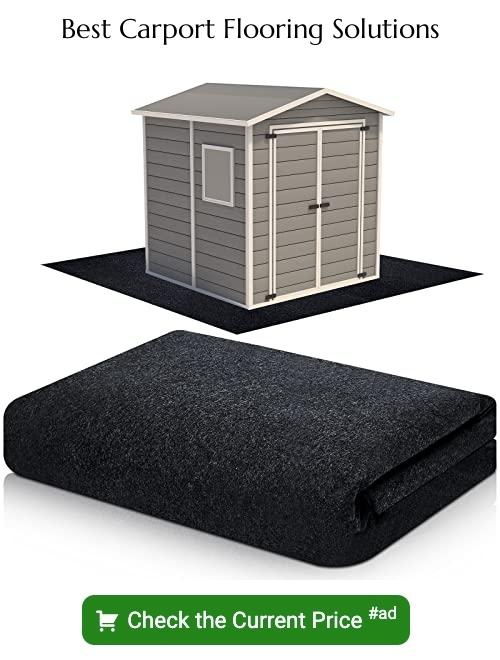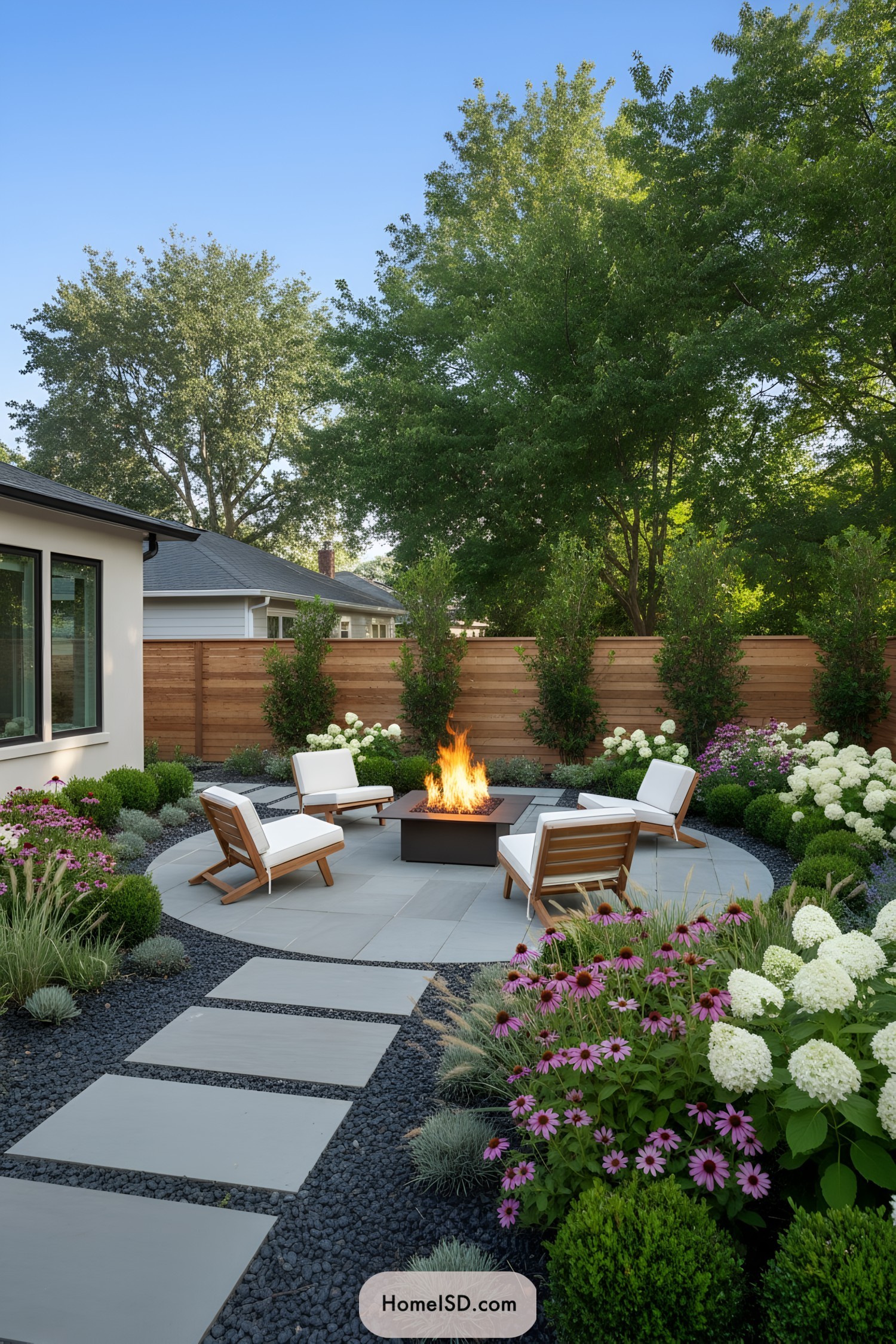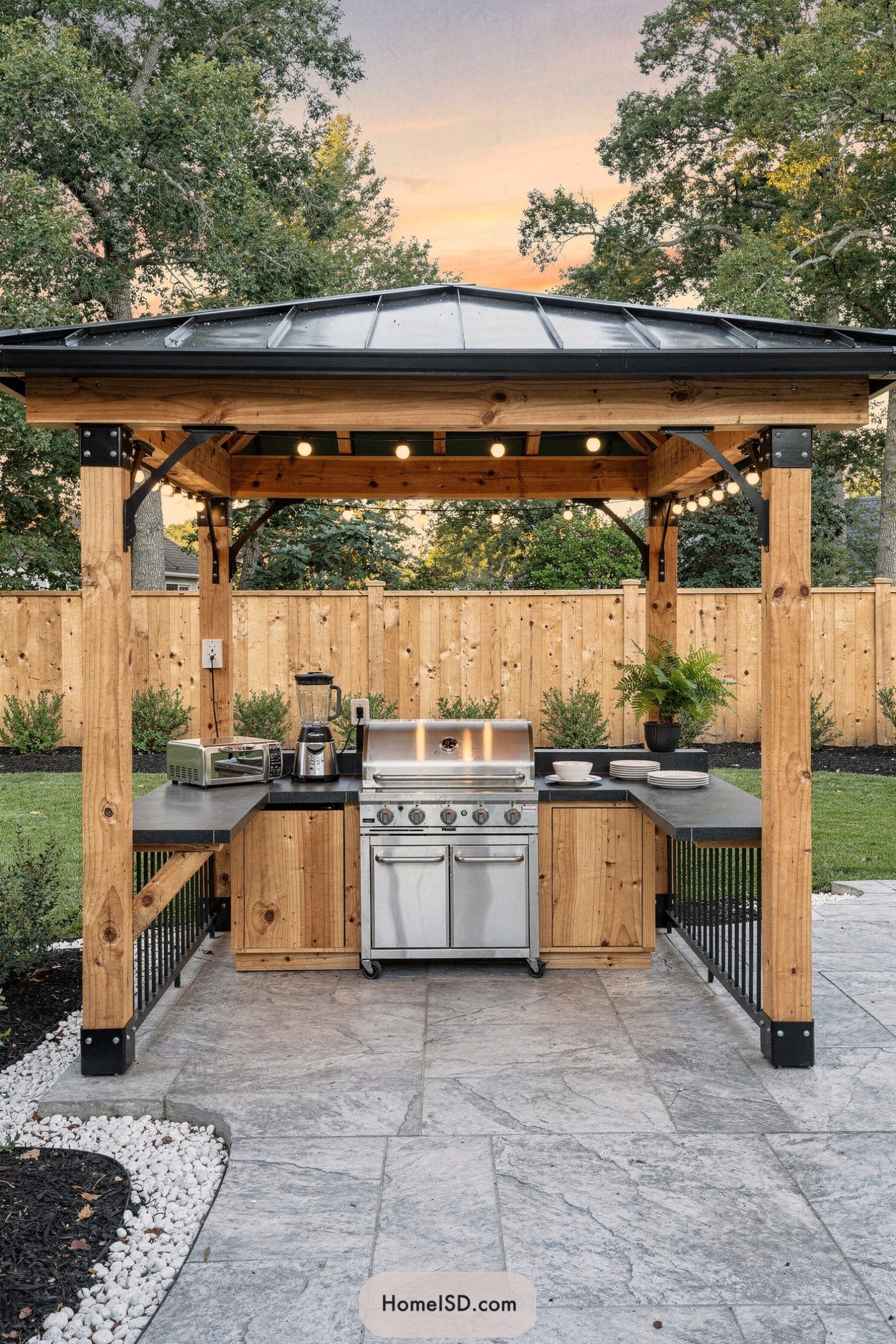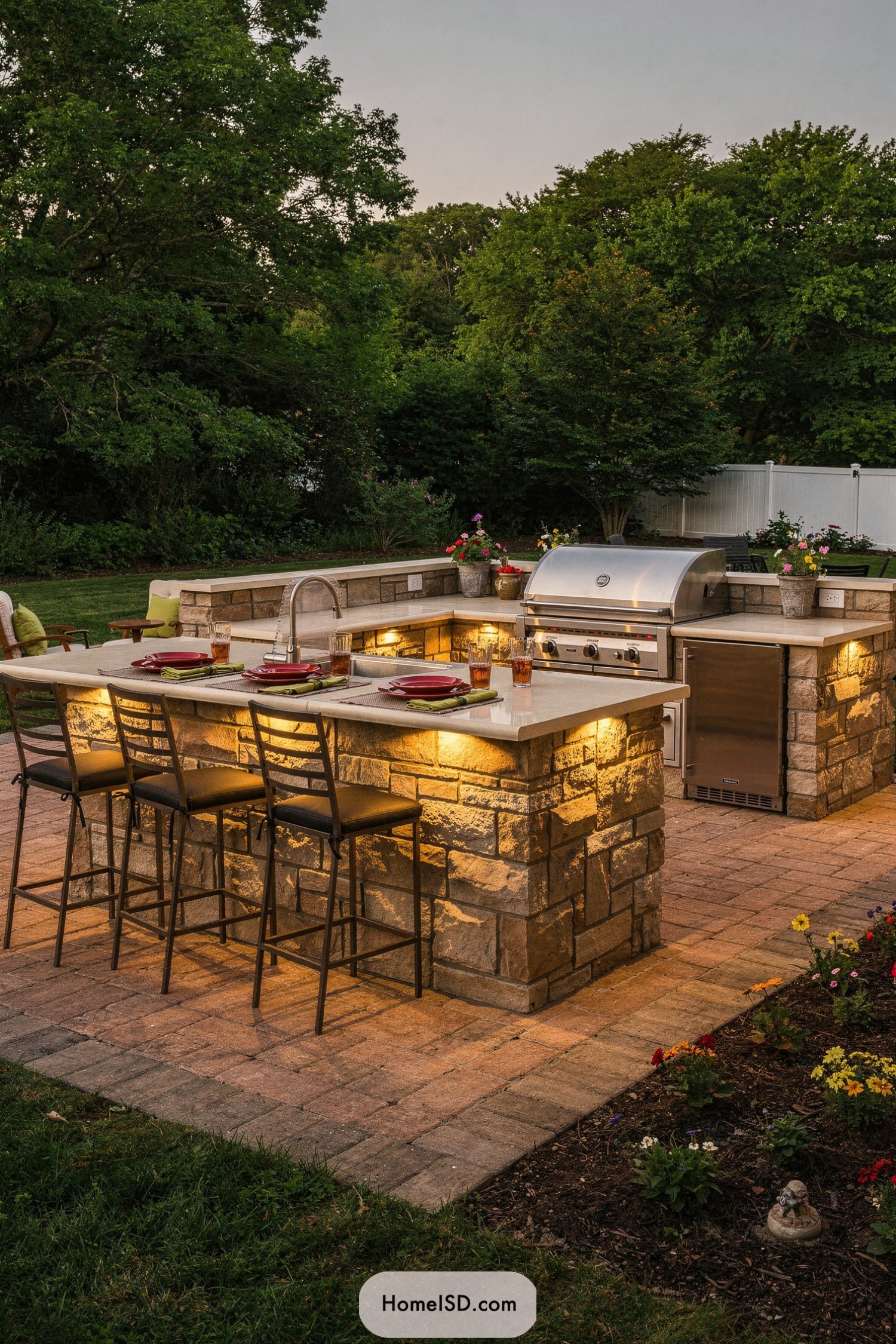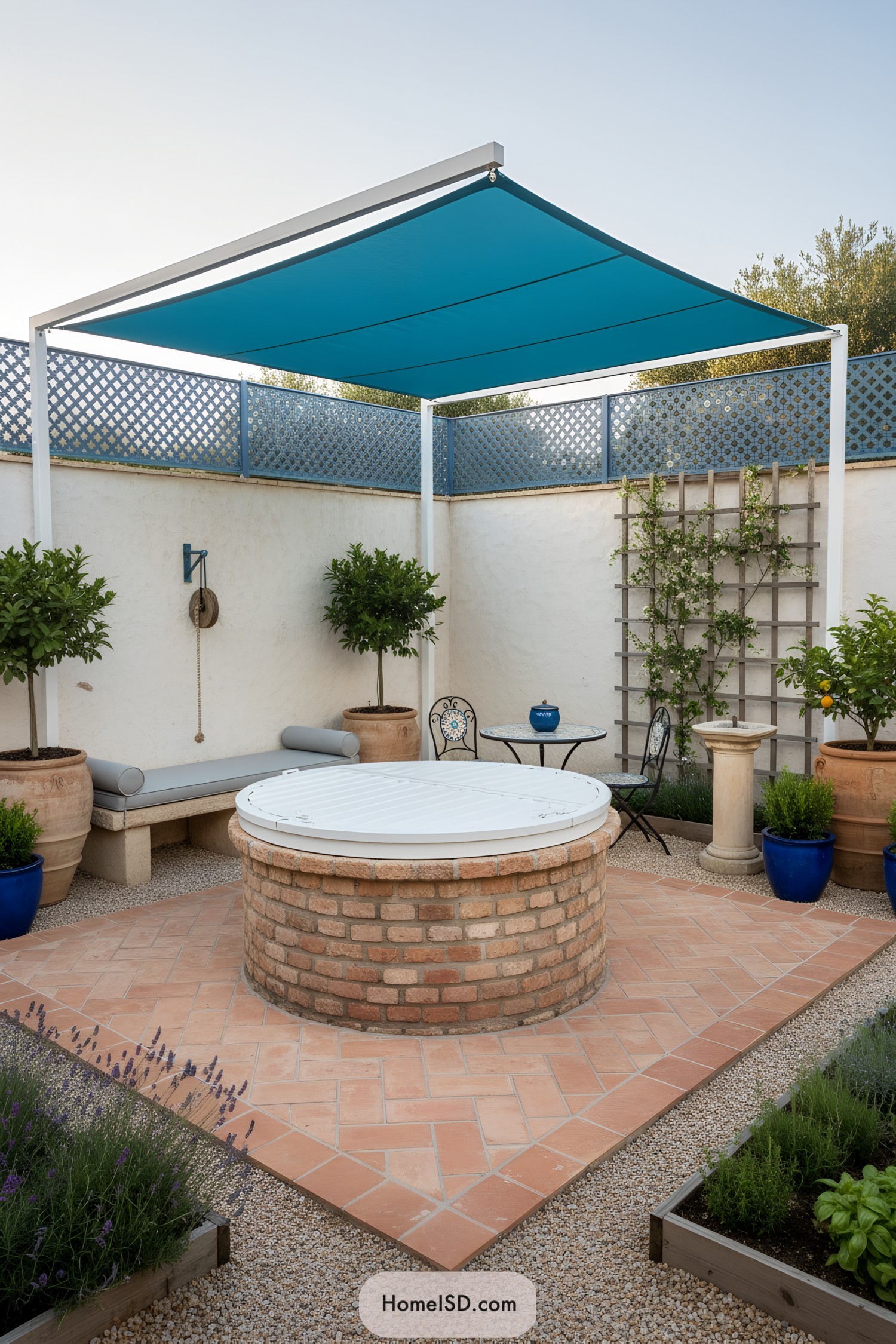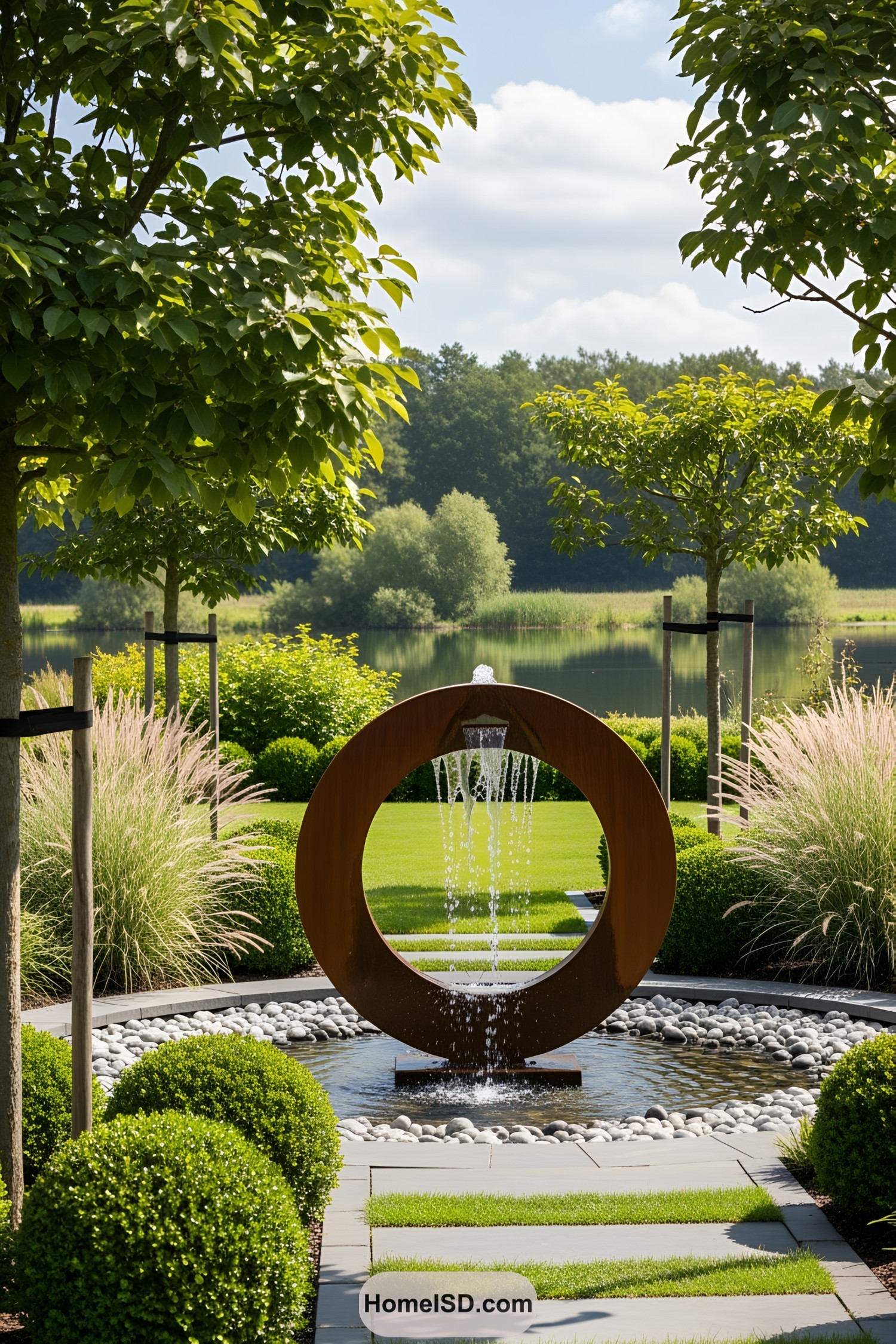Last updated on
Use these carport floor ideas to choose the durable material that looks good to make your carport a feature than an eyesore. Read on!
A carport is a housing unit designed for vehicles outside. It is designed to protect the vehicle from the elements. Some carports like garages also have shelving cabinets and wall racks for keeping tools, spares, and consumables, such as oil, among other things.
Though most carports look like an exterior decor eyesore, it usually comes down to the choice of flooring (usually, it’s the concrete floor and concrete floor alternatives). It has to be durable enough, and you want it to look good. So while you can’t use all the same options as the garage floor (such as paint for garage floors), you can still get great results with the suitable outdoor flooring options.
Let’s dig in!
What Requirements Must the Carport Floors Meet?
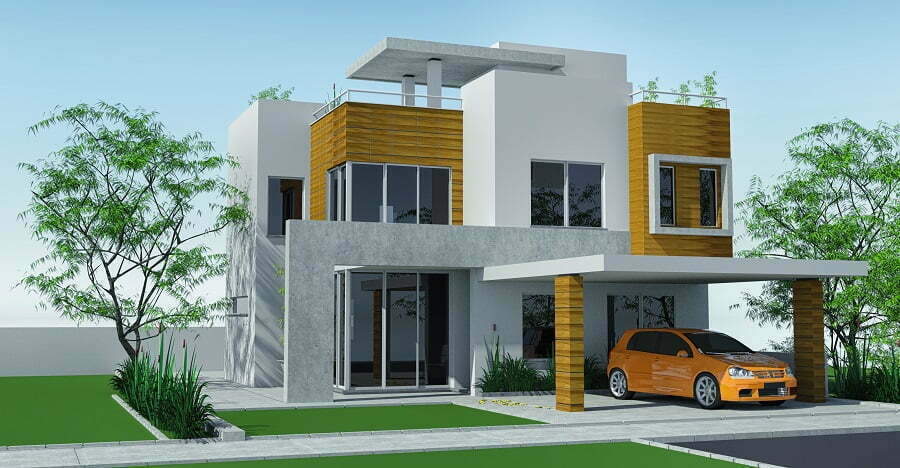
The carport floor must be strong enough to withstand the pressure exerted by the vehicle’s wheels. Therefore, the thickness of the slab should be sufficient to provide the required load-bearing strength.
Secondly, it must be stain resistant. This is because oil leaks can stain the floor. The ideal floor should be stain-resistant and easy to clean. Like the slippery garage floor, the carport is prone to the same stain issues (perhaps even more so due to weather.)
Thirdly, the floor of a carport should be hard to ensure heavy objects do not cause any damage when they fall onto the floor. It should also be waterproof in that it should not absorb water from the ground.
There should also be proper drainage on the floor to ensure fluids, such as water flow outwards.
Lastly, the floor should be resistant to chemicals.
How Is a Solid Foundation Created?
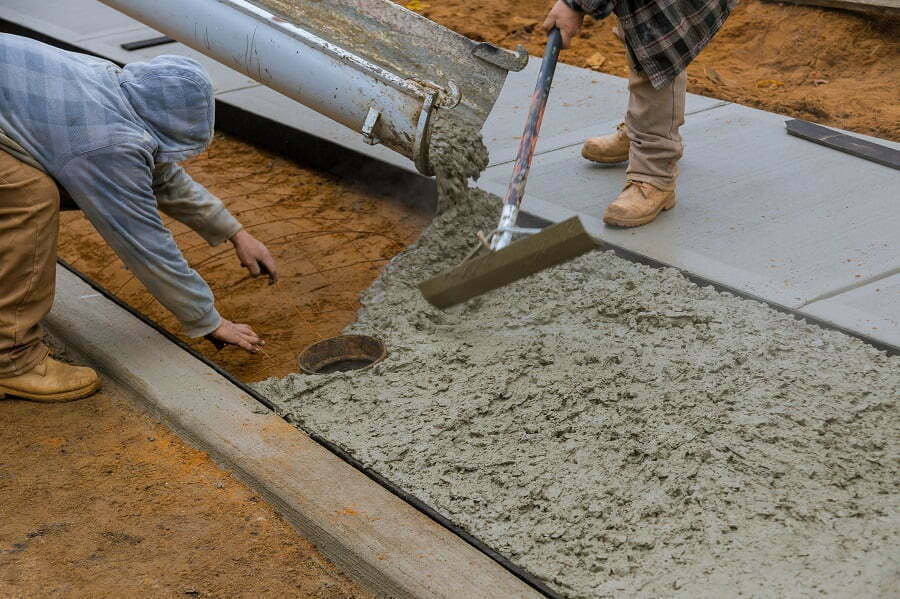
The first step in creating a solid foundation for your carport is surface preparation. The area must be cleared and leveled. You can choose between strip foundation, concrete foundation, and point foundation.
When creating a concrete foundation, the leveled ground must first be compacted. This can be done using a hand tamper. Pour a 2-inch layer of gravel and compact using the hand tamper.
Once the gravel is compact enough, prepare a 2500 psi concrete mix and evenly apply it to the surface. In the case of larger vehicles, a 4000 psi concrete mix should be prepared.
The first concrete layer should be 2-inches thick for smaller cars and 3-inches thick for larger vehicles. Use a rake to spread the concrete evenly.
The next step is to lay welded wire mesh sheets onto the concrete surface to reinforce the concrete foundation. This will help to prevent cracking.
Pour the rest of the concrete to create a 4-inch thick concrete foundation for small cars or a 6-inch foundation for larger vehicles. Use a screed or rake to smooth the surface of the carport floor.
Cover the foundation with a plastic sheet and let it cure for three or four days.
Carport vs. Garage Floor
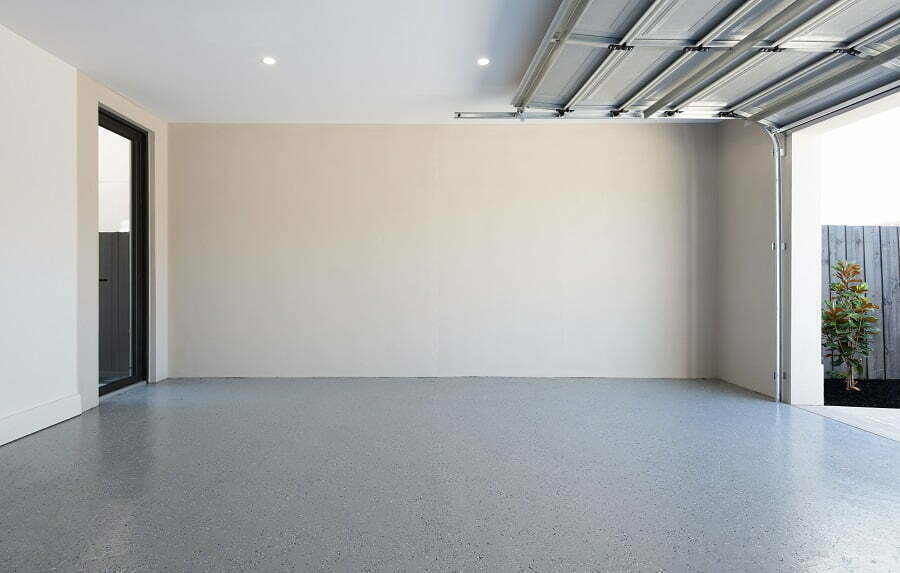
A carport differs from a garage in that a garage is a fully-enclosed structure with a shutter, while a carport is wholly or partially open on one or more sides. A carport is only meant to provide a shade over a parking area, while a garage provides a secure storage area for vehicles.
It also serves as secure storage for vehicle parts, consumables, and spares, among other things. A carport floor does not have to be a permanent feature, while a garage must be a permanent solid foundation similar to that of a house or even more robust.
Grit Gravel
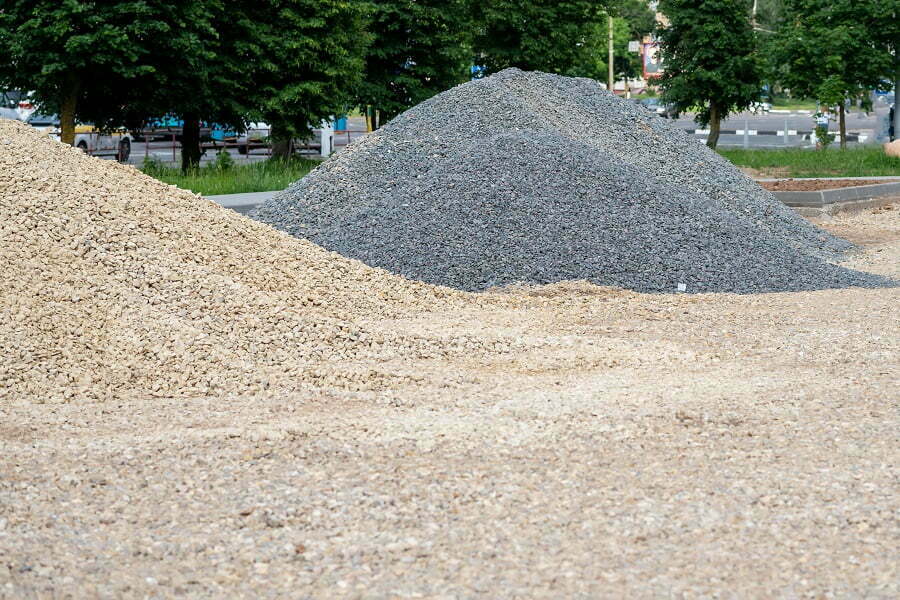
Grit gravel is simply coarse sand. This is a naturally occurring substance similar to sand, but particles are a little bit larger than regular sand granules. Grit gravel particles range from 1/16 of an inch to 3/16 of an inch.
This is an excellent flooring material for carports because it provides a hard surface with sufficient traction. The drainage is also excellent because water cannot stagnate on a grit gravel surface; it seeps right through the material.
Another significant benefit of grit is that the surface preparation required is limited. Please note that grit gravel can also be used to pave the driveway.
Crushed Stone
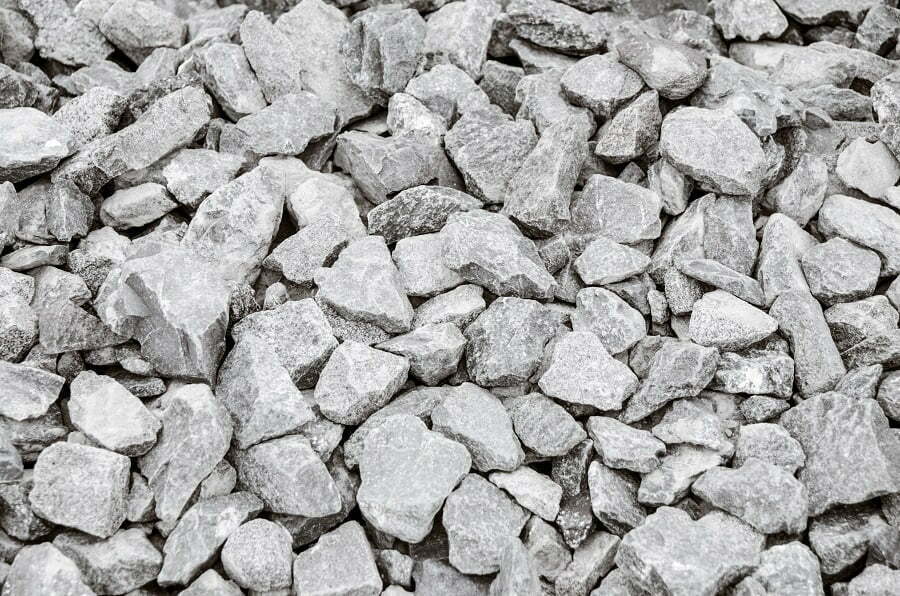
Crushed stone is another excellent flooring material for a carport building. It comes with the same benefits as those of grit gravel. For starters, it is cheaper to create a carport floor with this material as little surface preparation is required.
Secondly, the material is readily available from local quarries at a much lower cost than other construction materials. Thirdly, water retention is no danger as water seeps right through the crushed stones.
Paving Stones
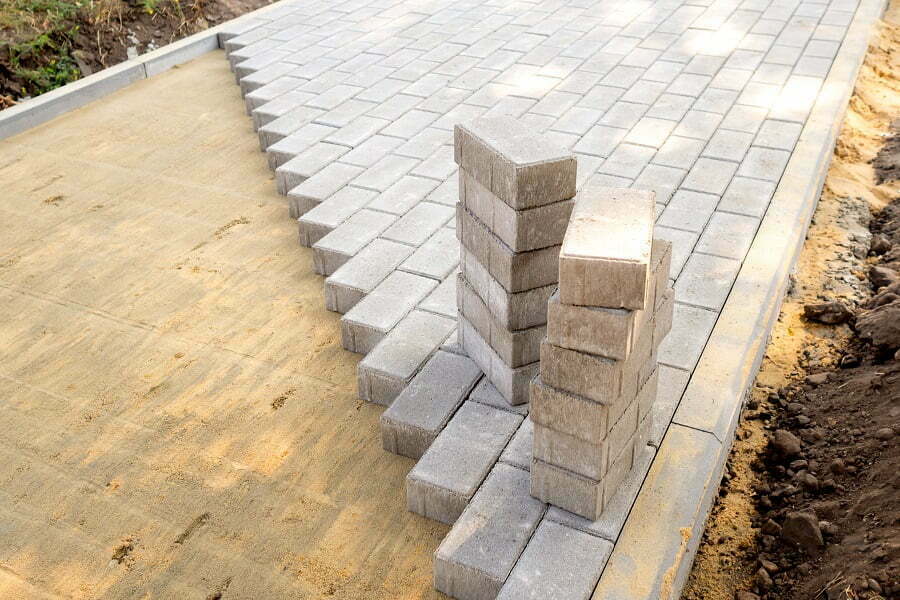
Paving stones can be made from concrete or natural stones. Whatever the case, the surface where the paving stones are to be installed must first be prepared before installation. This is because a relatively stable foundation is required for the paving stones.
The main benefit of paving stones is that they are beautiful and great for landscaping. Secondly, they come at a moderate cost and provide efficient water drainage from the surface.
Asphalt
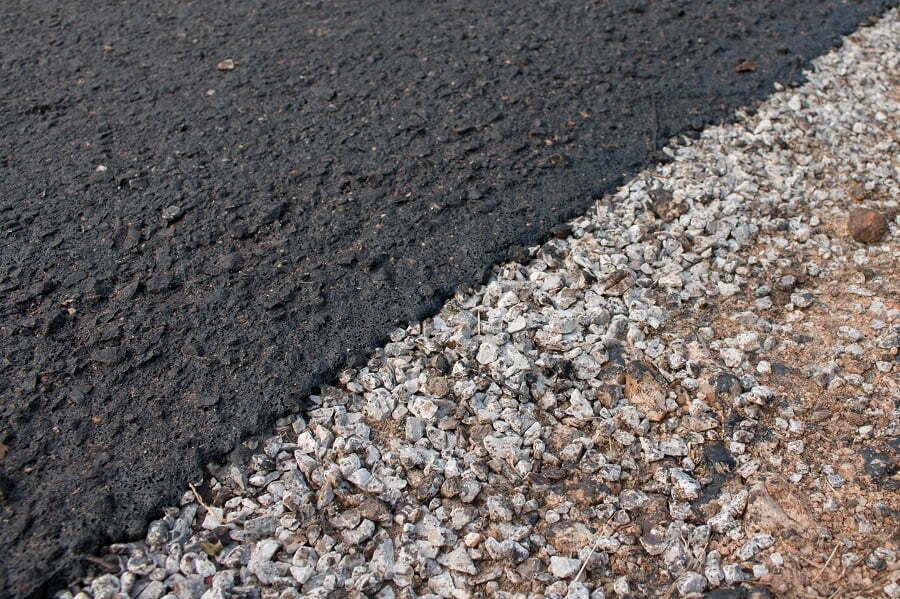
Asphalt has several benefits. For starters, it is waterproof, so surface water cannot find its way into its substructure. Instead, water flows to the sides of the asphalt-paved carport floor. It requires little care and maintenance, is elastic, and has a long lifespan.
Unfortunately, asphalt carport floors are costly and require proper drainage to prevent water from collecting on the surface.
Interlocking Tiles
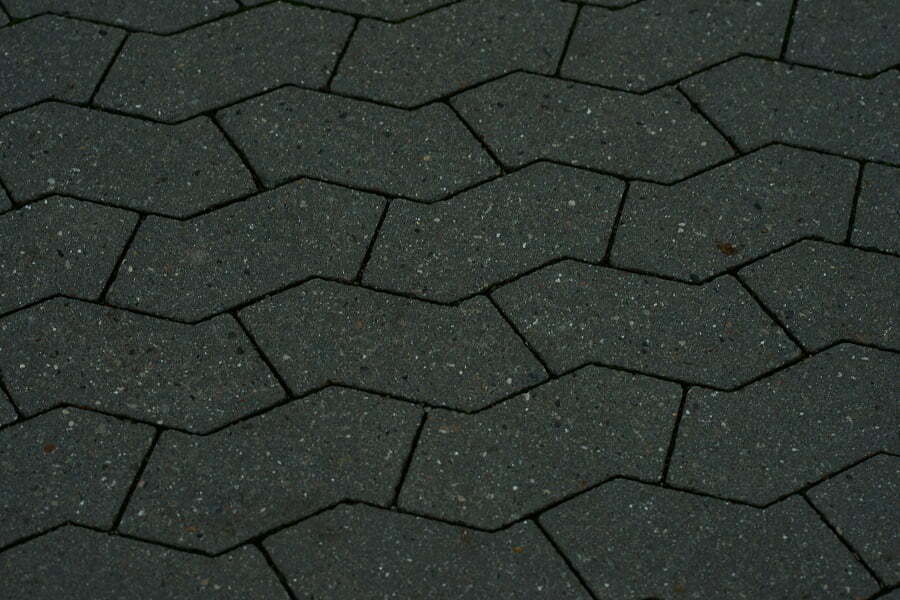
Interlocking tiles come in a variety of sizes, designs, and patterns. They are durable and easy to install. They do not allow water to stand on the surface as there are small spaces in-between the tiles, which allow water to seep to the bottom and drain away from the carport floor. To get the best results with these tiles, only professionals should be hired to do the installation.
Outdoor Carpet Tiles
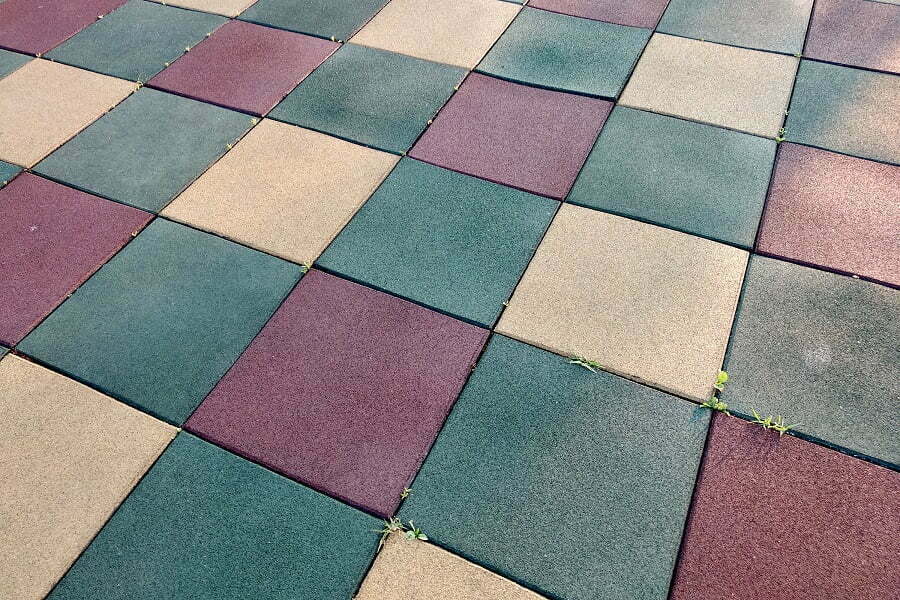
Suppose you’d like to have an aesthetically appealing carport floor material that does not necessarily have the durability and load-bearing capacity of other flooring materials. In that case, you can opt for outdoor carpet tiles. They come in various designs and colors and are easy to install.
Concrete
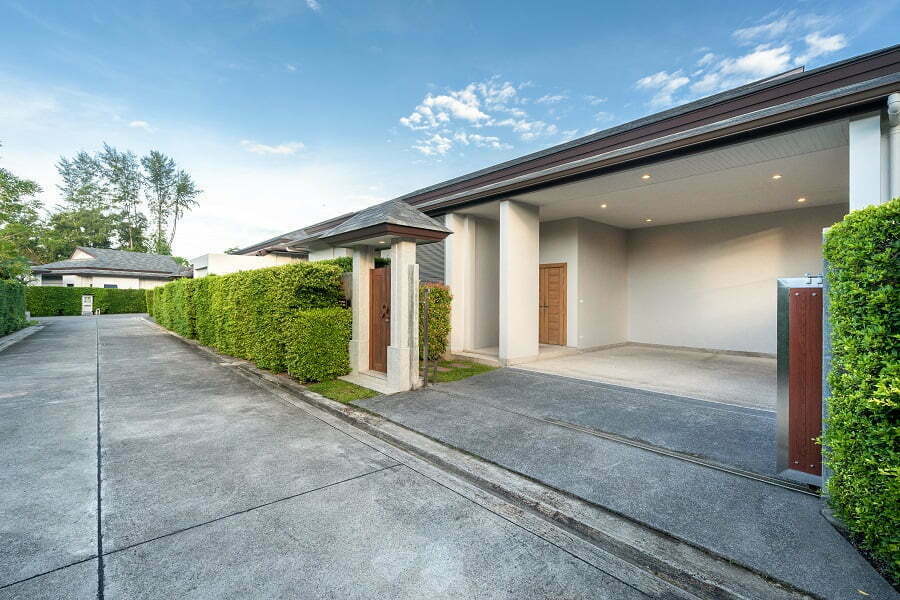
This is the best flooring material for carports because it is durable and easy to maintain. Concrete floors offer immense load-bearing capacity. Since concrete can easily crack, welded wire mesh should be installed within the concrete slab to improve its strength and prevent cracking.
Epoxy
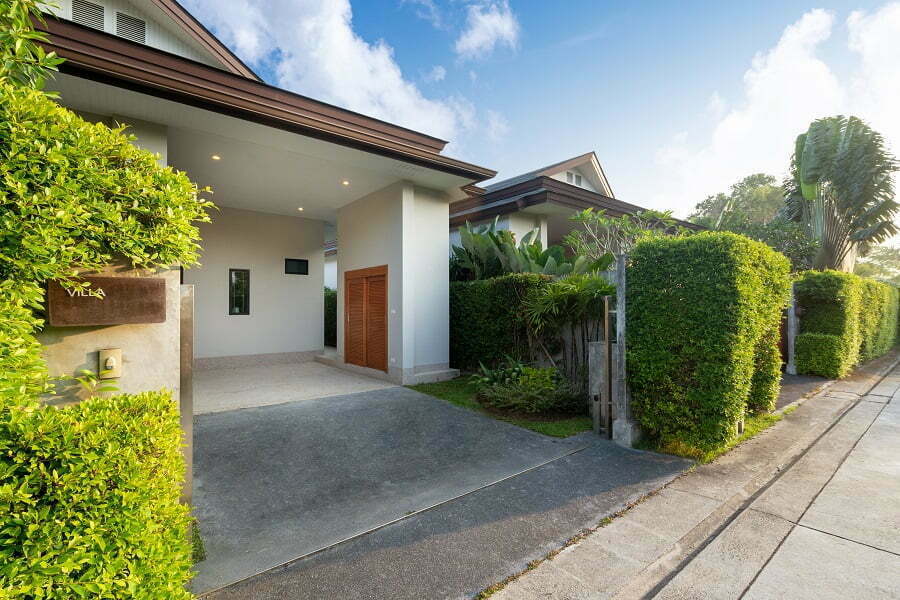
Epoxy is a synthetic compound that can provide surface protection for concrete floors and an excellent durable finish. You can apply epoxy paint to your concrete carport floor to make it easy to clean, improve its strength, and make the floor impact-resistant and waterproof.
Rubber Floor Materials
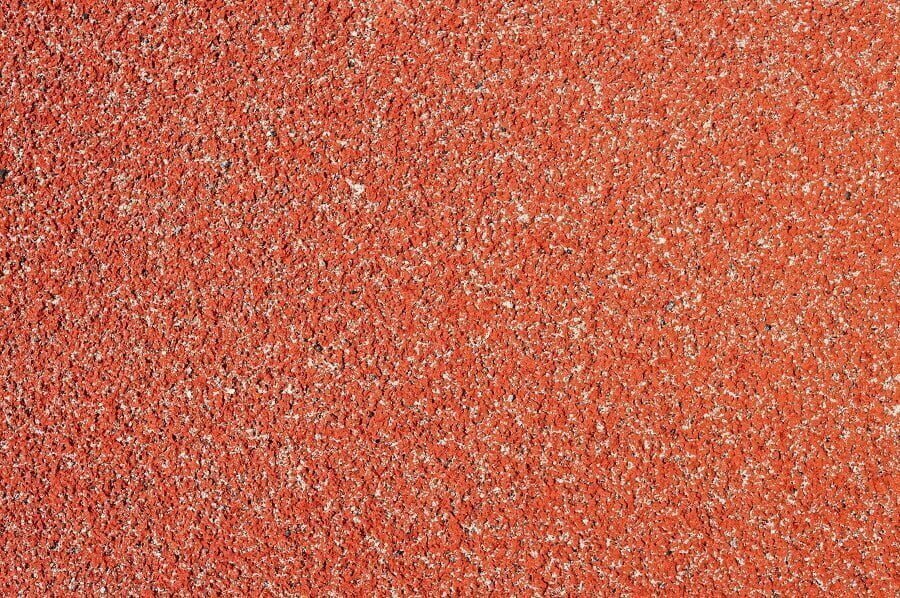
Rubber is excellent for garages and carports, but they’re not as durable as other outdoor flooring materials. Since most garages are used as chill pads and home offices, rubber floors are a great option.
Wood
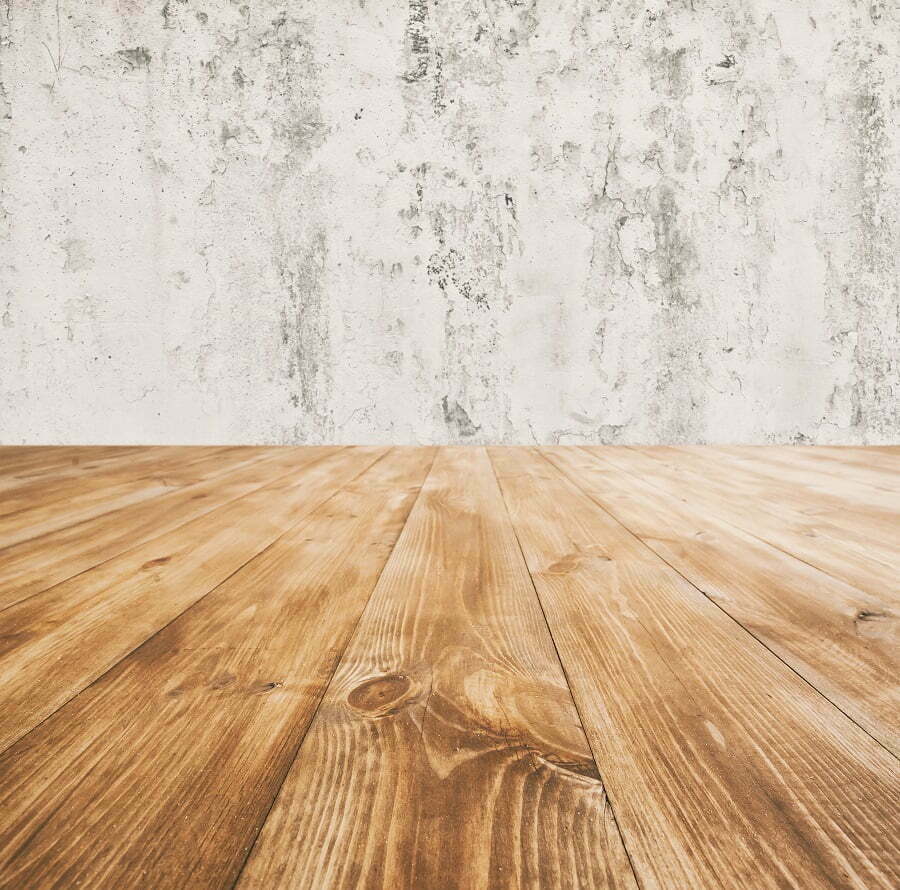
Wood is an excellent material for making garage and carport floors. However, only hardened, pressure-treated lumber can be used for this purpose. This is to ensure the timber does not rot. Proper design should also be done to ensure the wood provides sufficient structural strength to withstand the weight of the vehicle you own.
How Do You Seal a Carport Floor?
Many types of sealants can be used to seal the carport floor. They include; epoxy, acrylic, polyurethane, and silane sealants. Ideally, surfaces should be properly prepped before the sealant can be applied and given enough time to cure and dry.
FAQ
You can use any sealant or coating on your carport floor. Some of them include epoxy, acrylic, urethane, and silicone. The choice depends on what kind of surface you want to protect.
Yes, they are. Epoxy is one of the toughest coatings available today. It’s ideal for protecting concrete, metal, and vinyl floors. It’s also very flexible and can be applied over existing floors without damaging them.
Vinyl is not the best choice for carport flooring because it is prone to weather damage. While you can choose to use vinyl flooring in a garage, the carport requires a more durable option.
Recap
